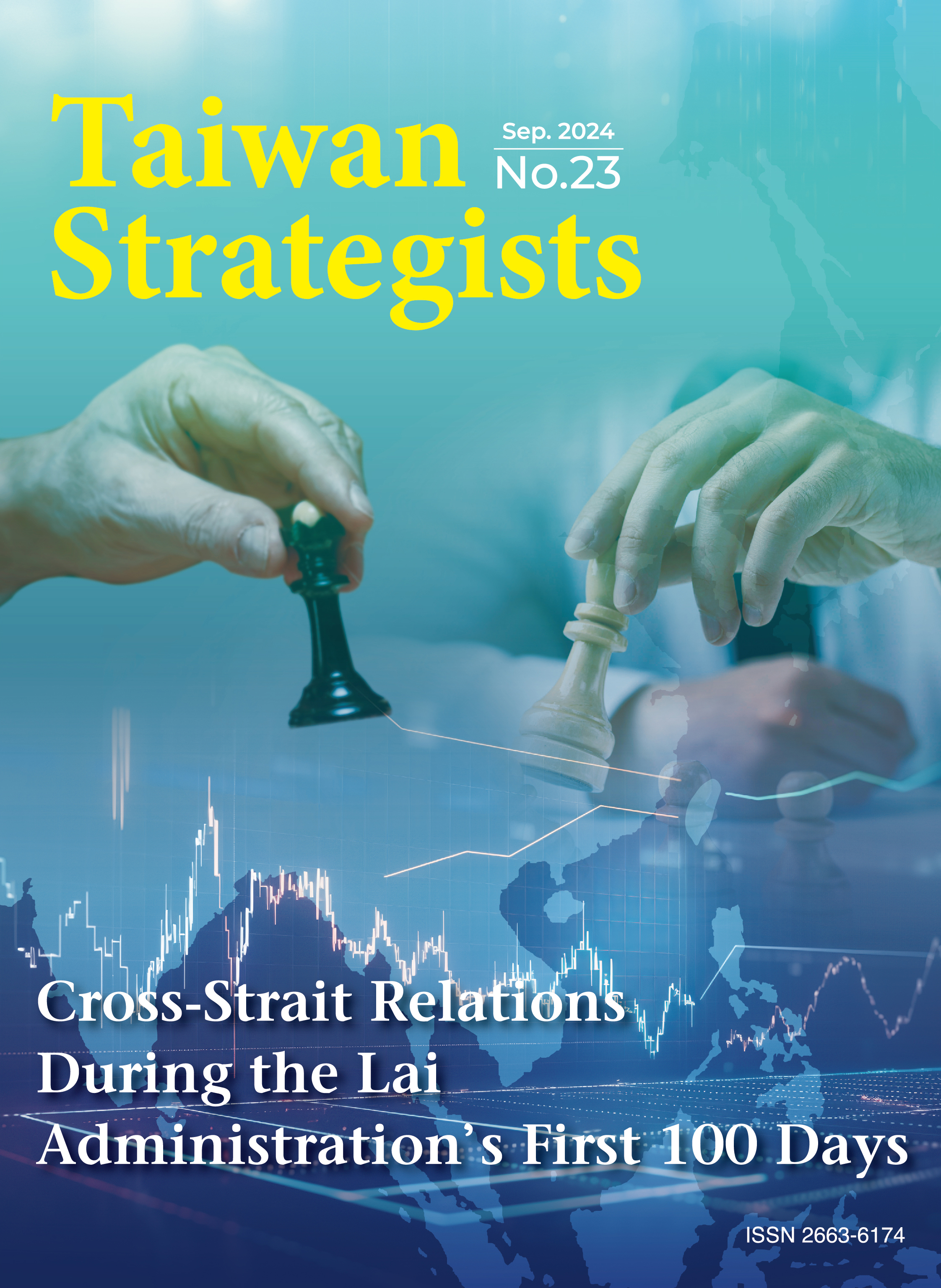Taiwan Strategists No. 23
China Coast Guard’s Gray Zone Operations and Potential Countermeasures
Yun-Hu Yeh
Associate Professor, Department of Maritime Police,
Central Police University
Abstract
The recent developments in the China Coast Guard, such as its integration with the People’s Armed Police and the implementation of the China Coast Guard Law, indicate a significant shift towards a more militarized and assertive maritime law enforcement body. This transformation has implications for regional security, particularly concerning gray zone operations against Taiwan, where the lines between military and law enforcement activities are blurred. These operations challenge Taiwan’s jurisdiction in the Taiwan Strait and its surrounding waters. It is crucial for Taiwan to uphold its legal stance on maritime boundaries, as this is a fundamental aspect of its sovereignty. Taiwan’s response should also focus on preventing unauthorized Chinese jurisdiction over its fishing vessels and educating the public on the risks and regulations related to maritime activities. This paper examines the evolving role of the China Coast Guard and explores potential countermeasures that Taiwan could adopt to safeguard its maritime interests.
Keywords: China Coast Guard, Gray Zone Operations, Taiwan Strait, Maritime Law Enforcement, People’s Armed Police
Issuance of the “Opinions on Punishing ‘Taiwan Independence’ Diehards” and Its Implications for China’s Taiwan Policy
Wei-Feng Tzeng
Assistant Research Fellow,
Institute of International Relations, National Chengchi University
Abstract
The issuance of the legal document titled “Opinions on Punishment of ‘Taiwan Independence’ Diehards Who Commit the Crime of Splitting the Country and Inciting Secession” by Chinese authorities earlier this year signifies Beijing’s intent to intensify lawfare against efforts to promote Taiwan independence. This paper reviews the background of this document and discusses its implications for China’s current Taiwan policy. It argues that the “Opinions” illustrate Beijing’s attempts to specify behaviors, conditions, crimes, and liabilities related to activities pursuing Taiwan independence, signaling increased pressure on Taiwan. However, while Beijing aims to intimidate Taiwan independence activists, it does not wish to escalate tensions in the Taiwan Strait, as this would conflict with its goal of integrating more Taiwanese people into the “mainland.” This reflects Beijing’s strategic thinking that intimidation and integration can work together. As a result, China has repeatedly emphasized that the “Opinions” target only a small group of “Taiwan independence diehards.” This mindset is likely to reinforce Beijing’s resolve to exert more pressure on Taiwan through domestic and international lawfare, which could inadvertently trigger an unwanted military conflict. In the future, Taiwan and like-minded countries should collaborate to counter China’s lawfare efforts. Additionally, Taiwan should make the consequences of such lawfare more apparent to remind China that these actions will backfire, fostering greater distrust across the Taiwan Strait.
Keywords: China, Taiwan, Lawfare, Taiwan Independence Diehards, Cross-Strait Relations
China’s Economic Coercion Methods Against Taiwan and Taiwan’s Responses
Ming-Fang Tsai
Professor, Department of Economics, Tamkang University
Abstract
Before the U.S.-China trade conflict in 2018, many people simplified free trade to reductions in production costs and tariff concessions. Many advocates of free trade have forgotten that the premise of free trade should be fair trade, not just the reduction of production costs. Therefore, when a country’s government raises tariffs in order to avoid becoming a victim of unfair trade, it is not anti-globalization, but the pursuit of fair trade. In order to reduce production costs and expand sales markets, many countries, including Taiwan, trade with China, but manufacturers in these countries have become targets of China’s economic coercion. Taiwan is a perfect example. Its agricultural products and fishery products, as well as food items, have long been banned from being exported to China under the pretext of pest infestations or failing inspections. The main purpose of the Chinese government in doing this is to economically coerce Taiwan by weaponizing some of Taiwan’s export products in the Chinese market. In order to mitigate the impact of China’s economic coercion on the Taiwanese government and manufacturers, Taiwan has taken measures to reduce its economic dependence on China and Hong Kong. The share of Taiwan’s export value to those two destinations has significantly decreased from 40.1% in 2016 to 35.2% in 2023, while exports to the United States rose from 12% to 17.6% during the same period. As Taiwan’s export market becomes more diversified and Taiwanese businesses continue to leave China, the proportion of Taiwan’s exports to China will continue to decrease. As a result, the impact of China’s economic coercion on Taiwan will become less.
Keywords: Economic Coercion, Global Supply Chain, Economic Security, ECFA, Economic Autonomy




